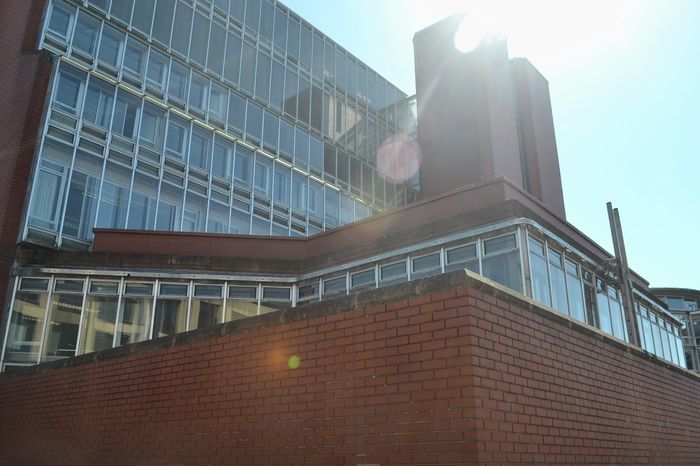CUSU demands Trinity Hall Master resign after mishandling sexual assault complaint
CUSU said it would be an “insult” for Dr Jeremy Morris to continue on as Master and University Councillor after failing to investigate the allegation by a student in 2018

Content note: This article contains detailed discussion of sexual assault and harassment.
CUSU has called on Trinity Hall Master Dr Jeremy Morris to resign, calling his position “untenable”, following allegations he mishandled a sexual assault allegation levelled at the Senior Tutor Dr William O’Reilly in 2018.
In a statement on their Facebook page, CUSU said they “unreservedly condemn the actions of Trinity Hall and its leadership”, which they argue “have demonstrated an institutional disregard for survivors of sexual misconduct and a complete inability to safeguard students and staff.”
On Monday, an investigation by Tortoise Media implicated Morris as one of several senior Trinity Hall figures involved in mishandling, or accused of sexual misconduct towards students at the college over a period of 13 years.
The investigation alleged that in May 2018, Morris heard an allegation about a student who had been sexually assaulted by O’Reilly, and did not investigate nor take any ‘preventative’ action against the Senior Tutor - and allowed him to remain in his role for five months.
Since yesterday morning, Morris’s Twitter account has also been deleted.
“By allowing the then-Acting Senior Tutor to remain in post, despite knowing that an allegation of sexual misconduct had been made against him, Jeremy Morris has demonstrated a total disregard for his duty of care to the students of Trinity Hall,” argue CUSU in their statement.
CUSU further stresses Morris should “step down from his position as a University Councillor” as well as Master, since continuing in either role “would be an insult to students at Trinity Hall and completely undermine the University’s commitment to tackling sexual misconduct.”
The statement also claims “these cases highlight a deeper problem with the collegiate University’s approach to allegations of sexual misconduct”.
A spokesperson for O’Reilly said: “He rejects any suggestion that he behaved improperly and is appalled that what should have been confidential procedures have been made public.
“He strenuously denies the serious allegation made against him”.
O’Reilly claims he withdrew from supervising students when he was made aware of the allegations against him and only resumed teaching when the police decided that no further action would be taken.
However, Tortoise say they have seen evidence suggesting he supervised several undergraduate students during this period. O’Reilly continues to dispute this.
CUSU urges colleges to “commit to automatically referring cases of sexual misconduct to OSCCA” and then “uphold [its] recommendations.”
The OSCCA is the University’s Office of Student Conduct, Complaints and Appeals, and is currently one of the two bodies empowered to handle students complaints. The other is colleges, which CUSU suggests should longer be allowed to oversee cases of sexual misconduct entirely by themselves.
CUSU emphasises “it is time for colleges to cease dealing with cases of sexual misconduct internally.”
If you are affected by any of the issues raised in this article, the following organisations provide support and resources:
- Breaking the Silence: the University’s campaign against harassment and sexual misconduct (includes reporting mechanisms).
- Sexual Assault and Harassment Adviser: specialist University support worker who provides emotional and practical support
- Cambridge for Consent: a student-run campaign to promote consent.
- Cambridge Rape Crisis Centre: a charity for female victims of sexual violence.
- Cambridge Nightline: a confidential night-time listening service.
- Students’ Unions’ Advice Service: the Students’ Unions’ confidential, independent and impartial advice service.
 News / Clare Hall spent over £500k opposing busway 24 December 2025
News / Clare Hall spent over £500k opposing busway 24 December 2025 Comment / The ‘class’ of Cambridge24 December 2025
Comment / The ‘class’ of Cambridge24 December 2025 News / Caius mourns its tree-mendous loss23 December 2025
News / Caius mourns its tree-mendous loss23 December 2025 News / Girton JCR publishes open letter expressing solidarity with Palestine25 December 2025
News / Girton JCR publishes open letter expressing solidarity with Palestine25 December 2025 Comment / Yes, I’m brown – but I have more important things to say22 December 2025
Comment / Yes, I’m brown – but I have more important things to say22 December 2025











